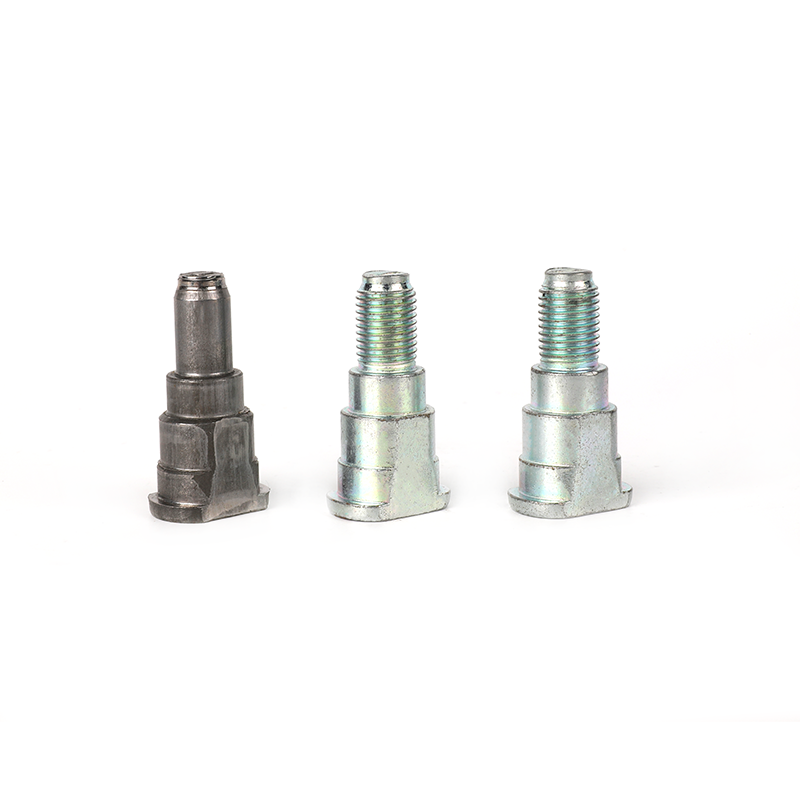Room 102, Building 13, Area A, Wanyang Zhongchuang Park, Ganyao Town, Jiashan County, Zhejiang China.

Quality control (QC) measures are crucial in the production of auto parts screws to ensure they meet stringent safety, performance, and reliability standards. Defective or non-conforming screws can lead to serious safety issues and costly recalls in the automotive industry. Here are some common quality control measures used to detect defects or non-conformities in auto parts screws:
Visual Inspection:Manual Visual Inspection: This is a basic and widely used method where trained inspectors visually examine screws for surface defects such as cracks, burrs, incomplete threads, surface damage, rust, and improper coating.Automated Optical Inspection (AOI): Automated systems use cameras and sensors to inspect screws for surface defects, dimensional accuracy, and thread integrity. AOI can be highly effective for high-volume production, providing consistent and fast inspection results.
Dimensional Inspection:Go/No-Go Gauges: Go/no-go gauges are used to quickly check if the screw dimensions, such as thread diameter, pitch, and length, fall within the specified tolerance limits.Coordinate Measuring Machines (CMM): CMMs provide precise measurements of screw dimensions and can detect deviations from design specifications. They are often used for batch sampling and inspection of critical screws.Laser Measurement Systems: These systems use laser scanning to measure the dimensions of screws with high accuracy, ensuring consistency and conformity to specifications.
Thread Inspection:Thread Gauges: Thread gauges are used to verify that the threads of screws conform to the required specifications. They check for pitch diameter, lead, angle, and form.Profile Projectors and Thread Micrometers: These are precision instruments used to measure and inspect the profile and dimensions of threads for conformity to standards like ISO, DIN, or ANSI.

Mechanical Testing:Tensile Testing: Tensile testing machines apply a controlled force to a screw to determine its tensile strength, yield strength, and elongation. This test ensures that screws can withstand the forces they will encounter in service.Hardness Testing: Hardness tests (e.g., Rockwell, Vickers) measure the hardness of screws to ensure they meet the required material and heat treatment specifications.Torque Testing: Torque testing verifies the amount of torque needed to tighten a screw to a specific tension, ensuring proper clamping force and resistance to loosening.Shear Testing: Shear tests evaluate the ability of screws to resist shearing forces, which is essential for screws used in structural and load-bearing automotive applications.
Non-Destructive Testing (NDT):Eddy Current Testing: Eddy current testing detects surface cracks, inclusions, or other defects in metallic screws without damaging them. It is useful for inspecting large quantities quickly.Ultrasonic Testing: Ultrasonic testing can detect internal defects like voids, inclusions, or cracks that are not visible on the surface, ensuring the structural integrity of critical screws.Magnetic Particle Inspection (MPI): MPI is used to detect surface and near-surface cracks in ferromagnetic materials. Screws are magnetized, and magnetic particles are applied to reveal any discontinuities.
Metallographic Analysis:Microstructure Analysis: Samples are cut, polished, and examined under a microscope to analyze the grain structure, phase distribution, and heat treatment effects. This analysis ensures the material properties are consistent and meet the required standards.Chemical Composition Analysis: Techniques like X-ray fluorescence (XRF) or spectrometry are used to verify the chemical composition of screws, ensuring they conform to material specifications and are free from contaminants.
Coating and Corrosion Resistance Testing:Salt Spray Testing (ASTM B117): Salt spray tests are used to evaluate the corrosion resistance of coated screws. This test helps to ensure that screws will not corrode prematurely in their intended environments.Coating Thickness Measurement: Coating thickness gauges (e.g., magnetic induction, eddy current) measure the thickness of protective coatings (e.g., zinc plating) to ensure uniform coverage and adequate protection.
Sampling Plans and Statistical Process Control (SPC):Sampling Inspection: A statistically significant sample of screws is selected from each batch and inspected according to defined criteria to determine the batch’s overall quality.Statistical Process Control (SPC): SPC tools, such as control charts and process capability analysis, are used to monitor the production process in real-time, identify variations, and take corrective actions to prevent defects.
Automated Sorting Machines:High-speed sorting machines equipped with vision systems, laser scanners, and eddy current testers can sort screws based on dimensional accuracy, thread quality, and surface integrity. Defective screws are automatically removed from the production line.
Documentation and Traceability:Inspection Reports and Certificates of Conformance (CoC): Detailed inspection reports document the results of quality checks and tests, providing traceability and accountability for each batch of screws.Lot Traceability: Lot numbers and batch codes ensure that screws can be traced back to their production runs, enabling quick identification and recall of defective products if necessary.
By implementing a combination of these quality control measures, manufacturers can effectively detect defects and non-conformities in screws for automotive parts, ensuring reliability, safety, and compliance with industry standards.

Fix anchorbolts include bolts, washers, nuts and 4PCS cylindrical shields. By tightening the bolts, the shields tubes expand and the components can be...
See Details
Flange bolts are specially used to tightly connect pipes and components with flanges. We produce flange bolts are solid t and durablethat, compling wi...
See Details
The Grade 8.8 black oxide full-thread hexagon socket bolts have an internal hex design and needs to be used with a wrench with a hex head. Its full th...
See Details
Grade 8.8 black oxide full-thread hexagon bolts is a very common fastener and requires a wrench or hex wrench to tighten it. Our hex head bolt meet th...
See Details
This product is made of high-quality carbon steel and undergoes a rigorous heat treatment process. It has high strength, good elasticity and toughness...
See Details
This 304 stainless steel plain full-thread hexagon bolt is a kind of fasteners made of high-quality stainless steel material and has corrosion resista...
See Details
This plain round flat head weld shoulder bolt is a fastener suitable for a variety of welding applications. Its flat head and round head design makes ...
See Details
This Grade 12.9 zinc plated countersunk head square neck plow bolt has the advantages of high precision, high operability, high strength, and high ten...
See Details